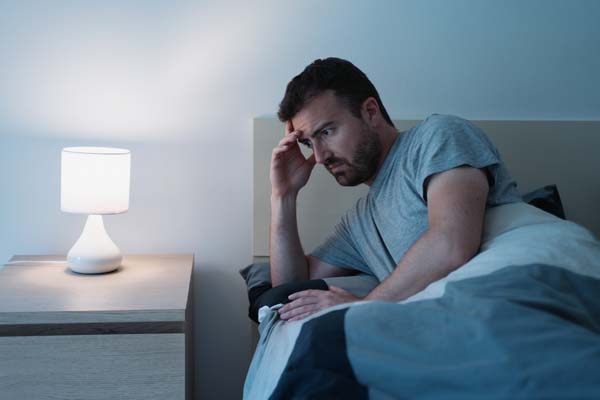Insomnia Treatment: What to Do When You Can’t Sleep

If you are having difficulty sleeping or are waking up feeling tired, it may be time to consider insomnia treatment. The University of Pennsylvania School of Medicine reports that 25 percent of Americans suffer from insomnia. Without proper treatment, you can be part of the 75 percent of these people who never develop long-lasting problems.
Insomnia treatment options
When you are diagnosed with insomnia, your doctor will sit with you to discuss factors that might be contributing to your condition. They will discuss changing your sleep habits and ways to manage any stress you are feeling. A doctor will also want to know what medication you are taking to make sure it is not affecting your ability to sleep.
If you are still unable to get a good night’s rest, your doctor will suggest alternative treatment options. These methods can include cognitive behavioral therapy and prescription medication. You can also use over the counter sleep aids and home remedies.
Cognitive behavioral therapy
This type of insomnia treatment helps you eliminate any negative thoughts or actions that might keep you up at night. It is usually the first type of treatment doctors suggest. The cognitive part of the therapy teaches you how to recognize and change any thoughts that affect your ability to sleep.
You can use the treatment to eliminate or control the negative thoughts that keep you up at night. The behavioral part of the therapy helps you develop good sleeping habits that allow you to sleep well.
Some of the strategies involved in the therapy include:
- Relaxation techniques: This helps if you are dealing with stress because it allows you to decompress. You will learn how to relax your muscles, and reduce anxiety using breathing exercises
- Light therapy: This involves using light to push back your internal clock if you fall asleep too early and wake up too soon
- Sleep restriction: This technique requires you to deprive yourself of sleep partially. You cannot take naps during the day and must spend less time in bed. When your sleep cycle improves, you can gradually spend more time in bed
- Stimulus control: This involves removing the things that condition your mind not to go to sleep. If you have been coached to have a specific bedtime and a specific time to wake up, you should use the bed when you want to sleep and leave the room if you do not fall asleep within 20 minutes. Return to the bedroom when you start feeling sleepy again
Prescription medication
If the therapy does not work, you can ask your doctor to prescribe medication to help you sleep. Some of the medication that has successfully helped people dealing with insomnia include Ambien, Edluar, Lunesta, Rozerem and Sonata. Since prescription sleeping pills can be habit-forming or have other side effects, a doctor will help you find the most suitable choice.
Sleep aids
Non-prescription sleeping medication has also been a useful insomnia treatment, but they are generally not as strong as prescription medication and have several side effects. You should consult with your doctor before buying anything from the drugstore.
Do you want better sleep?
Having insomnia makes it difficult to get a good night’s rest, but there plenty of treatment options available to help you sleep better. If you are tired of tossing and turning at night, you can visit our office to see which insomnia treatments can help you.
Request an appointment here: https://www.hopetmsofny.com or call Hope TMS and Neuropsychiatric Center at (646) 578-8152 for an appointment in our New York office.
Check out what others are saying about our services on Yelp: Insomnia Treatment in New York, NY.
Recent Posts
Mental health plays a critical role in overall well-being, influencing thought patterns, emotional stability, and behavior. For those experiencing persistent challenges, a formal diagnosis can provide clarity and a structured approach to healing. With guidance from a psychiatrist, individuals can better understand their condition and begin a path toward long-term mental wellness.A mental health diagnosis…
Ketamine therapy employs a medication long used in anesthesia to treat depression and other mental health disorders. Traditional treatments for these disorders do not always work, and not everyone can tolerate the side effects of traditional drugs. Even though it is newer, psychiatrists are observing that ketamine is already showing promise in the treatment of…
Insomnia disrupts sleep patterns and negatively affects overall health, leading to fatigue, difficulty concentrating, and emotional distress. This condition can result from chronic stress, anxiety, depression, or medical issues that interfere with the body's natural sleep cycle. A psychiatrist can help diagnose and address insomnia, providing tailored treatments focusing on mental and physical well-being.Insomnia is…
Relationship obsessive-compulsive disorder (ROCD) is a distinct subtype of OCD that can cause persistent doubts and distressing thoughts about romantic relationships. OCD treatment can help individuals manage their intrusive thoughts and compulsive behaviors associated with ROCD. Understanding and having access to the available treatment options can help individuals regain control over their thoughts and the…


